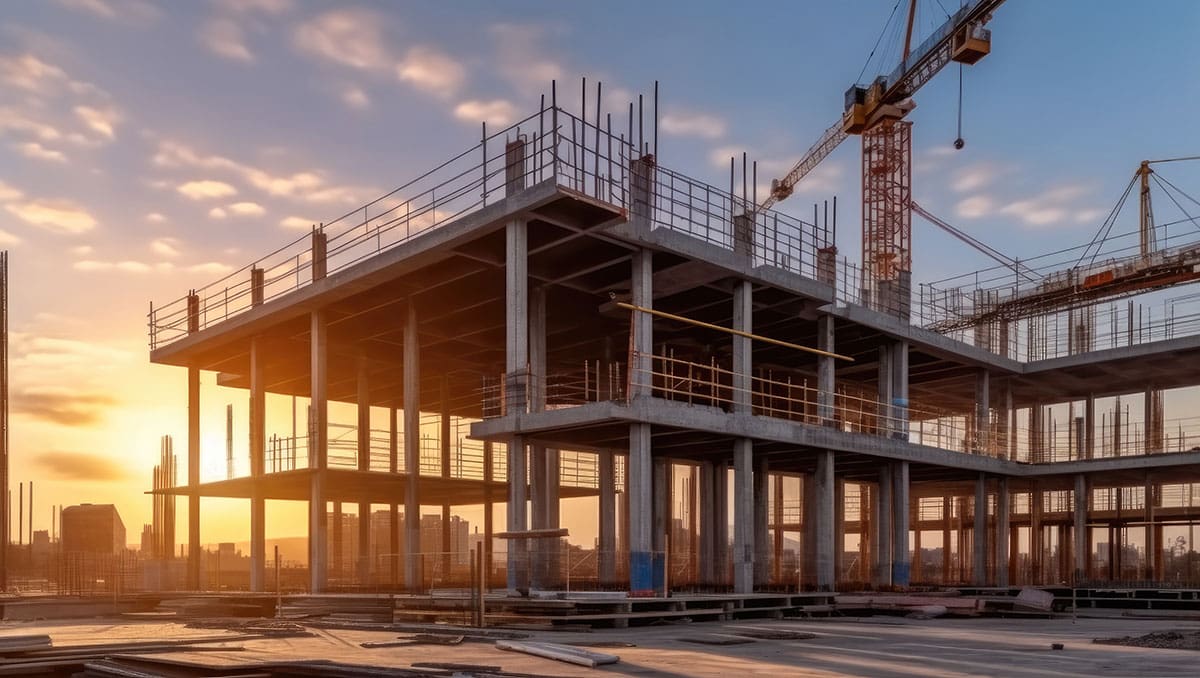
January 15, 2024
Commercial buildings NEED excellent air barriers i.e. systems of materials designed and constructed to control airflow between a conditioned space and an unconditioned space.
In simpler terms, an air barrier is a system that controls the movement of air between the inside and the outdoors of a building.
Most people associate air barriers with airtight windows and doors yet there’s more. Other materials commonly used as air barriers include:
- Sheathing materials
- Membranes and films
- Spray Foam Insulation
- Gypsum Board (Drywall)
- Building Wraps and Felts
- Sealants and Adhesives
- Metal Flashing
- Specialized Air Barrier Systems
No doubt, air barrier testing is essential for residential buildings (and other types of buildings), but the effects of poorly sealed building envelopes can prove to be more disastrous for commercial buildings.
Take a big government hospital, for example; if air barrier testing is neglected in the commissioning of such a huge infrastructure, outdoor air, and moisture could invade the building and reduce the effect of the building’s air conditioning. Patients who need ambient temperatures for recovery (or even survival) would be greatly affected.
Another thing, commercial buildings exist for the sole purpose of trading. This means that making profits is of paramount importance in a shopping mall, educational institution, office building, hotel, motel, restaurant, airport, industrial warehouse, etc. If such buildings are poorly sealed, money will be lost on a larger scale as a result of the overall energy inefficiency of the building.
On average, commercial buildings typically serve many more people than residential buildings. The effects of poor air barrier commissioning affect more people in commercial buildings as a result.
All this is not meant to trivialize the importance of air barrier testing in residential areas but to shine the spotlight on the larger scale that commercial buildings have. That being said, here are seven key reasons highlighting the importance of building air barrier testing in commercial construction:
- Energy Efficiency
A properly functioning air barrier is essential for maintaining energy efficiency in a commercial building. Uncontrolled air leakage can result in significant energy losses, as heating or cooling systems must work harder to maintain the desired indoor temperature. Regular air barrier testing ensures that the building envelope is effectively sealed, minimizing energy waste and reducing operational costs. - Building Performance
Air barrier testing helps assess and improve the overall performance of a building. It ensures that the structure can effectively resist the intrusion of outside air and prevent the escape of conditioned air. This is particularly important in extreme weather conditions, as a well-sealed building envelope contributes to occupant comfort and safety. - Moisture Control
Air barriers also play a role in managing moisture infiltration. Uncontrolled air movement can carry moisture into the building envelope, leading to issues such as mold growth, rot, and structural damage. Testing the air barrier helps identify potential weaknesses and allows for corrections to be made to prevent moisture-related problems.
- Indoor Air Quality
The quality of indoor air is closely tied to the effectiveness of the air barrier. If unfiltered outdoor air can easily enter the building, it may bring pollutants, allergens, and contaminants with it. Proper air barrier testing ensures that the building envelope is secure, contributing to better indoor air quality and a healthier environment for occupants.
- Code Compliance
Many building codes and standards mandate the inclusion of air barriers in commercial construction to meet energy efficiency and environmental sustainability requirements. Air barrier testing is often a requirement for compliance with these codes. Ensuring that a building passes air barrier tests is crucial for obtaining necessary permits and certifications.
- Long-term Durability
An effective air barrier system contributes to the long-term durability of a building. By preventing the infiltration of air and moisture, the risk of structural damage and deterioration is minimized. This is especially important in regions with challenging weather conditions.
- Cost Savings
Investing in proper air barrier testing during the construction phase can result in long-term cost savings. Energy-efficient buildings with well-designed air barrier systems generally have lower operational costs, making them more economical over the lifespan of the structure.
Professional Air Barrier Testing for Your Commercial Project
Do you need professional help analyzing the construction of your building envelope and verifying the building envelope air leakage rate? As the Southern Independent Testing Agency, we provide consulting and testing related to the performance of air barrier performance on commercial buildings.
We’ve worked on more than 15,000 projects mainly in Florida over the past 5 decades. Our robust team consists of more than 18 certified Test and Balance engineers and technicians.
We systematically follow test methods for determining the air tightness of buildings to meet ASTM standards. Our process follows three crucial steps:
- Building Inspection and Installation Review
- Air Barrier Testing and Analysis
- Envelope Diagnosis
Get in touch with us to ensure the energy efficiency, building performance, moisture control, indoor air quality, code compliance, long-term durability, and cost savings of your commercial construction.
Regular testing and maintenance of the air barrier system contribute to the overall sustainability and functionality of the building.

